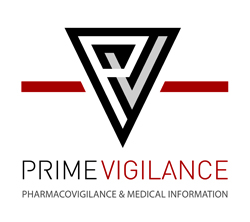To meet good pharmacovigilance practices, regulatory authorities expect Marketing Authorisation Holders of medicinal products to review the scientific literature for their product portfolio on a weekly basis.1 The purpose of this review is to identify individual case safety reports (ICSRs) relevant for 7/15-day reporting to Regulatory Authorities and non-ICSR publications relevant for the purpose of signal detection and for the production of aggregate reports – such as Periodic Safety Update Reports (PSURs) and Periodic Benefit Risk Evaluation Reports (PBRERs). Even for well-established medicinal products, literature database searches – such as PubMed, Embase, etc. – can easily yield several thousand hits per year. Therefore, strategies have to be in place to ensure efficient triaging and review of pharmacovigilance literature. Dr. Joerg Seebeck will present such a strategy and discuss, based on examples, why certain publications might be relevant and why others are not.
Due to the complexity and variety of the data sources available in scientific literature for the purpose of pharmacovigilance (as further detailed below), triage and review are difficult tasks. In addition, large product portfolios and limited resources require these analyses to be performed with high efficiency. Consequently, staff involved in these activities must have a thorough medical and scientific knowledge base, in addition to being adequately trained and experienced. The aim of this presentation is to contribute to that training effort.
Databases to be considered: Wide ranging databases such as Embase, PubMed, and Medline which are considered sufficient; and other databases which may be used when justified.
Search strategy: There is no ‘gold standard’ for search strings and search strategies may be database-specific. Usually it is a compromise between precision and recall (sensitivity). Search strings must include the name of the active ingredient / INN and standard search strings should be validated. The GVP module on PSURs states:
“Literature searches should be wider than those for individual adverse reaction cases as this should also include studies reporting safety outcomes in groups of subjects and other products containing the same active substance. The special types of safety information that should be included, but which may not be found by a search constructed specifically to identify individual cases, include:
- Pregnancy outcomes (including termination) with no adverse outcomes;
- use in paediatric populations;
- compassionate supply, named patient use;
- lack of efficacy;
- asymptomatic overdose, abuse or misuse;
- medication error where no adverse events occurred;
- important non-clinical safety results.
If relevant and applicable, information on other active substances of the same class should be considered.” The GVP module further states that literature data are relevant to identify new efficacy, effectiveness and safety information.2
Literature searches should be performed on a weekly basis and not only to identify ICSRs but also to identify relevant non-ISCR information which may lead to the identification of an Emerging Safety Issue (ESI) which has to be reported without delay.
Triaging results (hits): In order to be able to report expeditable ICSRs (7/15 day reporting time line) and ESIs in time, literature search results should be triaged and reviewed within 5 days. The initial triage should aim to identify all cases and case series using the standard 4 minimum criteria that define a valid case (identifiable reporter, drug, event and patient) and other cases that need to be databased for presentation in the PSUR (e.g. asymptomatic overdose, abuse, off-label use, misuse or medication error).
Identification of non-ICSR but relevant literature data: A more complex task. Data sources that are typically of high relevance are prospective large randomized controlled clinical trials (e.g. for demonstration of lack of efficacy and the relative risk for certain adverse events), state of the art drug-drug interaction studies if they demonstrate an impairment in the systemic availability of the drug of interest, thorough QT studies, meta-analyses investigating efficacy and safety issues (e.g. NSAID and cardiovascular outcomes and GI bleeding events) and other signal-generating analyses of existing data sets (e.g. data mining in large multidrug databases or analysis of registry studies for incidence rates of certain adverse events, any study indicating teratogenic or carcinogenic effects in animals or humans. In vitro data only, with exceptions, are often difficult to interpret due to uncertainty in terms of the relevance of the model chosen and of the drug concentration used.
Speaker

Dr. Joerg Seebeck, Chief Medical Officer, PrimeVigilance
Joerg is responsible for the PrimeVigilance Medical Group and its important work that includes reviewing reports of adverse reactions, signal detection, contributing to periodic safety update reports, risk management planning and provision of EU Qualified Persons for Pharmacovigilance. Joerg also manages consultancy projects and takes a leading role in overall client management.
Prior to joining PrimeVigilance, Dr Joerg Seebeck was the Head of Medical Services for a large, global contract research organization, and prior to that he worked for 6 years at BfArM, the German medicines regulatory authority. Joerg holds a MD degree from the University of Goettingen, Germany, and has a background in Internal Medicine and Clinical Pharmacology (specialist degree).
Who Should Attend?
- All-levels of pharmacovigilance and regulatory professionals in the pharma and biotech space
- Pharma and biotech companies with post-marketed products in the EU or US markets
- Senior-level executives and decision-makers in procurement and functional outsourcing
- Clinical safety experts interested in scientific literature review for safety purposes
Xtalks Partner
PrimeVigilance
PrimeVigilance is a fast growing pharmacovigilance and medical information service provider. We specialise in supporting Pharmaceutical, biotech and generic companies manage the global safety of their products from late-stage development through to full post-marketing pharmacovigilance.
Media Partner
You Must Login To Register for this Free Webinar
Already have an account? LOGIN HERE. If you don’t have an account you need to create a free account.
Create Account

